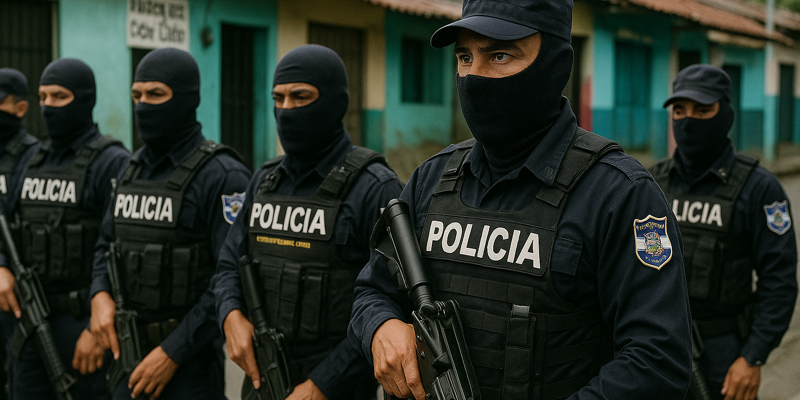Once known for its high crime rates, El Salvador was named one of the safest countries in 2023 by Gallup, the US global analytics and advisory firm.
It was the only Latin American country included in the top 10 safest countries, with 88% of Salvadoran survey respondents stating that they felt safe walking alone at night in their area.
El Salvador was also notable for the case of Kilmer Garcia, who was mistakenly deported to a large prison there, as well as for the meeting at the White House between President Trump and El Salvador’s President Nayib Bukele.
President Bukele’s citizen safety strategy
El Salvador’s president declared a month-long state of emergency in March 2022 due to gang violence, which has been extended 30 times.
According to the UNHCR, the latest extension was announced on October 4. During this period, there have been 604 days without homicides and over 82,000 gang-related arrests. The Legislative Assembly claims the emergency has made El Salvador one of the safest countries globally. Deputy Suecy Callejas emphasised the importance of continuing to support President Bukele to maintain security and save lives.
Contested data
The University Observatory for Human Rights, supported by the European Union and USAID, noted a drop in homicide rates from 21.2 per 100,000 people in 2020 to 4.9 in 2023.
However, it reported a 134.8% increase in fatality rates in 2023 due to under-recording of violent deaths by state authorities, such as civilian deaths in armed confrontations and gang-related fatalities. The report suggests that government data on homicide rates is unreliable, as the national police have classified this information as reserved since 2022.
El Salvador has faced massive human rights violations, including arbitrary detentions, due process breaches, torture, and ill-treatment, according to Amnesty International.
Following the civil war with leftist guerrillas, which ended with a peace agreement in 1992, street gangs emerged. MS13 and Barrio 18 targeted poor urban youths, growing due to marginalisation and poverty. They engaged in extortion, drug distribution, and kidnapping. In March 2012, the government brokered a secret truce between both gangs, offering concessions to imprisoned gang members in return for reduced violence.
International stage
Presidents Trump and Bukele formed an alliance after Trump started sending Venezuelan immigrants to the well-publicised Cecot prison in El Salvador, accusing them of gang membership. Trump supports sending US citizen criminals to this prison if permitted by law.
Despite concerns about El Salvador’s safety and foreign prisoner policies, Bukele has improved his country’s profile through his association with Trump, while global opinion on the US President remains mixed.

